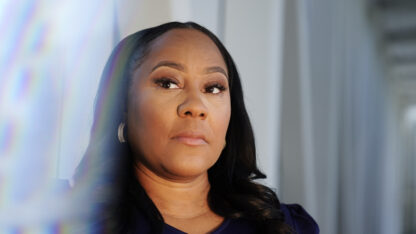Another sports gambling bill is advancing in Georgia, with supporters saying they believe they can legally set up betting under the purview of the Georgia Lottery Corporation without putting the issue to a statewide vote through a constitutional amendment.
The Senate Economic Development and Tourism Committee voted 8-2 Tuesday to advance Senate Bill 386, which would create 16 sports betting licenses. The measure moves to the Senate for more debate, although its prospects remain unclear after efforts to legalize gambling faltered once again in 2023.
“We believe this bill has brought a win for Georgia,” said Nick Fernandez of the Metro Atlanta Chamber, which supports the plan along with Atlanta’s pro sports teams.
Nationwide, 38 states allow sports betting, Some states allow only in-person bets, although most allow electronic betting from anywhere.
The lure of the bill is that it would only require a majority vote of both chambers and then the signature of Gov. Brian Kemp. A constitutional amendment would need two-thirds of both the House and Senate before it could go to voters for approval in a statewide referendum.
At least for now, the measure has backing from some Democrats. That’s key because some Republicans morally oppose gambling. However, Democrats have withheld their votes in other years, seeking to bargain over other issues.
Republican Sen. Clint Dixon of Buford argued that the measure is acceptable because tax proceeds would be spent on prekindergarten classes and HOPE Scholarships for students who achieve at least a “B” average in high school, the uses mandated when voters amended the constitution to allow a lottery in 1992.
“There is no constitutional amendment required because all the funds are going to the lottery to fund pre-K and HOPE,” Dixon said.
But opponents warn the measure could be declared unconstitutional, arguing voters would have never believed in 1992 that they were authorizing sports betting, then allowed only in person at Nevada casinos.
“I don’t believe this end-around is going to work,” said Mike Griffin, who lobbies for Georgia’s Southern Baptist churches.
A different Senate committee earlier this session passed a bill that would require a constitutional amendment, but there’s been no further movement on that measure. Those measures are backed by those who would like to see casinos and betting on horse racing in Georgia, as well as those would would like to spend sports betting taxes on other purposes.
An effort to pass a constitutional amendment flopped last year when it won 30 votes, a majority of senators but short of the 38 needed. Senators in 2023 also rejected a bill that would have authorized sports betting and betting on horse races without a constitutional amendment.
The bill that advanced Tuesday would take 20% of proceeds, after prizes are paid to gamblers, as taxes. Nationwide, tax rates are set at anywhere from 6.75% in Iowa to 51% in Rhode Island and New York.
The measure would give one license directly to the Georgia Lottery. Another eight licenses would be given to pro sports interests in Georgia, including MLB’s Atlanta Braves, the NFL’s Atlanta Falcons, the NBA’s Atlanta Hawks, the WNBA’s Atlanta Dream, Major League Soccer’s Atlanta United. Other licenses would go to NASCAR’s Atlanta Motor Speedway, and golf’s Augusta National and PGA.
The lottery would be in charge of distributing seven other licenses without ties to pro sports teams. Those licenses would require a $100,000 application fee and an annual license fee of $1 million.
While supporters said they believed sports betting would bring economic benefits, opponents dismissed those claims, saying it’s a gateway to addiction and that bettors as a whole will always lose money.
“Gambling is basically legalized fraud,” Griffin said. “Gambling is gambling. You can’t win. The industry can’t lose.”










